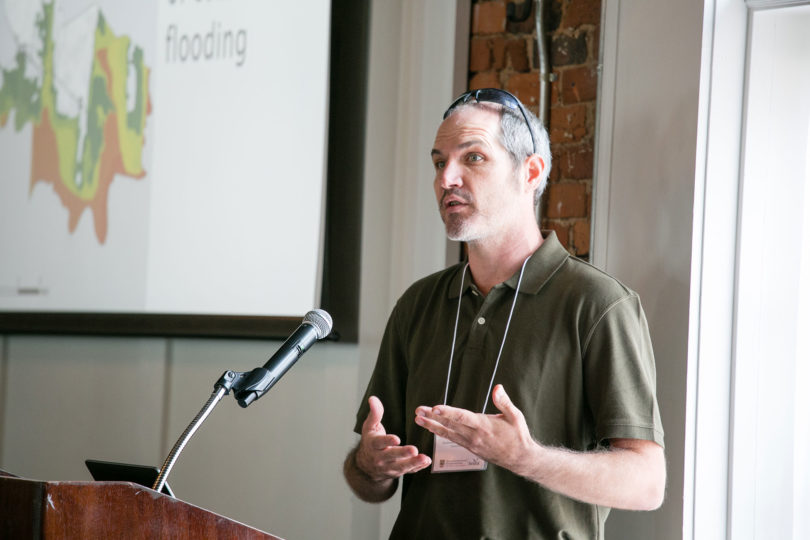When Hurricane Matthew washed away 30 percent of Georgia’s sandy coastline last October, UGA was ready.
With funding from Georgia Sea Grant, the Skidaway Institute of Oceanography already was studying sand resources and creating an inventory of sand deposits along the coast. Researchers are using that inventory to identify areas where sand was available to replenish the coastline that was lost during the storm. Replacing the lost sand is important to protect lives and property, as well as critical habitats, from coastal hazards.
“The sand resources in our state waters are the most poorly known of all the states along the East Coast,” said Clark Alexander, interim director of Skidaway Institute. “This research enables us to create maps identifying offshore areas that are suitable for beach nourishment and habitat restoration projects. With these data, we can know where suitable sand exists if we need it in the future after major storms.”
Alexander was one of many researchers across Georgia who presented a project June 1 during the Marine Extension and Georgia Sea Grant Research Symposium in Athens.
The annual symposium provides an opportunity for researchers to share their Sea Grant-funded work, network with others in the scientific community and look for collaborative ways to tackle the latest issues impacting the coast.
“Case studies presented during the symposium aptly illustrated Georgia Sea Grant’s success in elevating awareness of coastal issues, increasing local communities’ resilience to the effects of a changing climate and developing models that can be replicated to improve conditions on a global scale,” said Paul Wolff, chair of the Marine Extension and Georgia Sea Grant Advisory Board.
From projects that look at how to get local seafood into inland markets to those that measure the productivity of Georgia’s expansive salt marshes, Sea Grant-funded research spans a variety of topics and emphasizes the importance of multidisciplinary, collaborative research and outreach to effectively enhance coastal communities and ecosystems. Research proposals submitted to Georgia Sea Grant are expected to include an education and outreach component to ensure that results reach beyond the research community and are delivered to a diverse audience.








